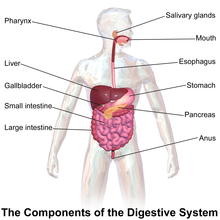**Group 1: Oral and Oesophageal Diseases**
– The oral cavity is part of the gastrointestinal system.
– Common oral conditions are plaque-induced diseases.
– Gastroesophageal reflux disease can manifest in the mouth.
– Dark spots on the oral mucosa can indicate certain diseases.
– Symptoms of oesophageal disease may include sore throat and difficulty swallowing.
– Diagnostic methods for oesophageal diseases include barium swallows and endoscopy.
**Group 2: Gastric and Intestinal Diseases**
– Gastritis is inflammation of the stomach.
– Peptic ulcers are commonly caused by Helicobacter pylori infection.
– Inflammatory bowel disease can affect the intestines.
– Symptoms of intestinal diseases may include vomiting and altered stool.
– Endoscopy and colonoscopy are diagnostic tools for stomach and intestinal diseases.
**Group 3: Small Intestine Diseases**
– Enteritis is inflammation of the small intestine.
– Chronic diseases affecting the small intestine include coeliac disease.
– Symptoms of small intestine diseases may include malnutrition and weight loss.
– Investigations for small intestine diseases may include blood tests and endoscopy.
– Treatments for small intestine diseases may involve renutrition and antibiotics.
**Group 4: Rectum, Anus, and Accessory Digestive Gland Diseases**
– Hemorrhoids and pruritus ani are common rectal and anal conditions.
– Liver diseases like hepatitis and cirrhosis affect the liver.
– Pancreatic diseases like pancreatitis and pancreatic cancer affect the pancreas.
– Gallstones are a common cause of gallbladder inflammation.
– Gastrointestinal cancers are influenced by excessive exposure to bile acids.
**Group 5: Miscellaneous Gastrointestinal Topics**
– Functional gastrointestinal disorders and malformations are additional gastrointestinal issues.
– Gastrointestinal bleeding is a significant concern.
– Studies on bowel wall thickening and intestinal angioedema induced by ACE inhibitors provide insights.
– Research on hepatic cirrhosis and the role of bile acids in gastrointestinal cancer development is available.
Gastrointestinal diseases (abbrev. GI diseases or GI illnesses) refer to diseases involving the gastrointestinal tract, namely the esophagus, stomach, small intestine, large intestine and rectum, and the accessory organs of digestion, the liver, gallbladder, and pancreas.
| Digestive disease | |
|---|---|
 | |
| Organs of the gastrointestinal tract | |
| Specialty | Gastroenterology |

